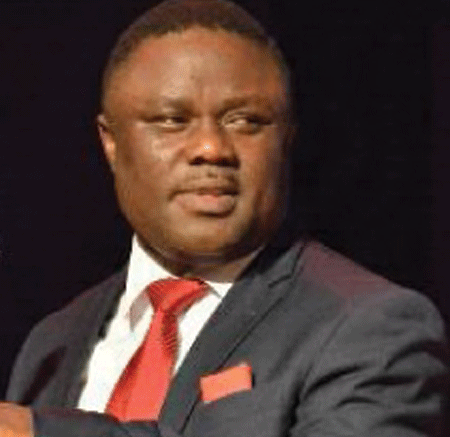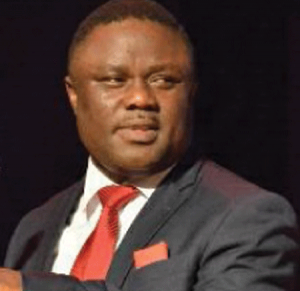

Contracts: Ayade Urges FG To Pay Multi-nationals In Naira
FeaturedNigeria April 24, 2016 Dianabasi Effiong

Gov. Ben Ayade of Cross River has called for payment of contractual fees and charges to multi-national companies in local currency. Ayade made the call when he received the Chairman and members of Senate Committee on Petroleum Resources Upstream, on a three-day workshop in Calabar on Wednesday.
He said that the measure would strengthen the Naira, grow the local economy, ensure less emphasis on the Dollars, and ensure the value for Naira is better appreciated.
Ayade said: “The dollarisation of contracts in the oil and gas sector is another crippling issue in this country. It is only in Nigeria that contracts are awarded in dollars and denominated in dollar.
“The international exchange rate is fast changing, a lot of people prefer to do business in their local currency.We have countries that have made laws that stipulate a minimum irreversible exchange rate between their currency and the dollar; we should not be an exception.
“Like every determined government, we should not allow the exchange rates of our Naira to escalate based on market forces of demand and supply, that is to say that we have a vehicle without a driver.”
He also said that activities in the oil and gas sector in the country which allowed for the sale of crude oil in dollars, should be tackled under the local content law.
Ayade stated: “`With our main exports, we should not have this kind of exchange rate that we are having in naira today.
“It may be synthetic, it may be a little artificial, it could be black market induced but we have failed to establish a framework that can give the naira its value. Must we always put the naira against the dollar? In most countries like UK, some of their foreign reserves come in form of gold.
Why must our foreign reserves be in dollars, why can’t we commoditise our foreign reserves?”
He stressed the need to convert Nigeria’s abundant mineral deposits like bitumen, gold, iron, among others, into foreign reserves in material terms and bring the Naira to shore up its value.
“There must be a deliberate local content policy to protect the Naira as a local currency. We need to understand the local content policy beyond the perspective of the narrow issues of the oil and gas industry, “he said.
Ayade urged the Federal Government to take a deliberate policy as well as ensure full implementation of local content act to shore up the value and strengthen the Naira. He also advised that all Liquefied Natural Gas shipments sales out of Nigeria should be paid to directly to the Central Bank of Nigeria.
“Only international banks that have branches in Nigeria should receive the dollar inflow of our crude oil sales and indeed from our gas sale. That way, we would be able to provide excess and accessible liquidity in dollar terms,” he said.
Ayade also lauded the choice of Calabar as venue for the workshop and urged the Senate Committee on Petroleum Upstream to advocate for more oil wells to be drilled in to increase production.
He also stated: “It is strange that Nigeria, from history, has always been on 2.4 million barrels per day in terms of production.
“There must be a means through which government can actually measure the true amount of crude oil being produced.”
Ayade also called for establishment of modular refineries to refine petroleum products.
“If we begin to refine our crude oil and sell only refined oil within the West African sub-region, it will give us higher value for our crude. So, the local content law has to do with the local utilisation of our raw materials as an avenue to create desired jobs and wealth,” he said.
Earlier the Committee Chairman, Sen. Tayo Alasoadura, said the choice of Calabar was because Cross River had, over the years, distinguished itself as the preferred destination in Nigeria.
He said that the essence of the workshop was to meet with relevant stakeholders in the oil and gas sector in tackling some of the issues within the sector seek ways that the sector could impact positively on Nigerians.






